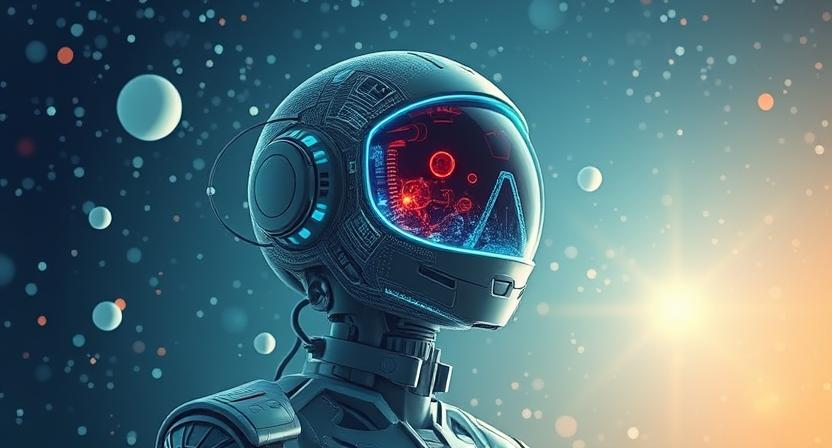The rapid advancement of technology over the last decade has reshaped industries, economies, and everyday life. As we look ahead to the next ten years, three areas stand out as particularly transformative: artificial intelligence (AI), space exploration, and emerging innovations in science and engineering. From self-aware AI to human colonies on Mars, the possibilities are endless. This article explores how these fields are set to evolve and what they could mean for humanity.
The Next Decade of Artificial Intelligence
AI and Automation: Changing the Workforce
AI has already revolutionized industries such as healthcare, finance, and manufacturing. However, the coming decade will see even greater integration of AI into the workforce. With advances in machine learning and deep learning, AI systems will take on more complex roles, from writing legal contracts to diagnosing diseases.
While AI-powered automation will increase efficiency and productivity, it also raises concerns about job displacement. Industries reliant on repetitive tasks, such as customer service, logistics, and retail, will see a shift where machines replace human labor. However, new roles will emerge that focus on AI supervision, ethics, and programming, creating fresh employment opportunities.
AI in Healthcare: Precision Medicine and Robotics
The healthcare industry will benefit significantly from AI advancements. AI-driven diagnostics will become more accurate, allowing for earlier detection of diseases like cancer and Alzheimer’s. Personalized medicine will use AI algorithms to tailor treatments based on genetic information, lifestyle, and environmental factors.
Robotic surgery will become more precise with AI-assisted instruments, leading to safer procedures and faster patient recovery. AI-powered virtual nurses and chatbots will assist with patient inquiries, easing the burden on healthcare professionals and improving patient care.
Ethical AI and Regulations
As AI continues to evolve, concerns surrounding ethics, bias, and privacy will intensify. Governments and organizations will need to develop regulatory frameworks to ensure AI is used responsibly. Expect to see increased scrutiny on data privacy, AI transparency, and bias reduction in machine learning models.
The Future of Space Exploration
Mars Colonization and Space Tourism
With ambitious plans from NASA, SpaceX, and other space agencies, the dream of colonizing Mars is closer than ever. The next decade may see the first human missions to Mars, with the potential for long-term settlements. Advances in life-support systems, sustainable habitats, and food production will be crucial for survival on the Red Planet.
Space tourism will also become more accessible. Companies like Blue Origin and Virgin Galactic are working on making suborbital flights available to the public. As technology advances, space hotels and lunar tourism could become viable options for high-net-worth individuals.
Lunar Exploration and Permanent Bases
The Moon will serve as a testing ground for further space colonization. The Artemis program aims to establish a sustainable human presence on the Moon by the 2030s. This could pave the way for resource extraction, such as mining lunar ice for water and oxygen, which could support further deep-space missions.
The establishment of lunar bases will allow scientists to study long-term effects of space habitation and test new propulsion technologies. The Moon’s low gravity makes it an ideal launch site for future interplanetary missions.
Advancements in Space Propulsion
Current space travel relies on chemical propulsion, which is slow and inefficient for deep-space missions. The next decade will see breakthroughs in alternative propulsion methods. Concepts such as nuclear thermal propulsion, ion drives, and even experimental warp drives could drastically reduce travel time to Mars and beyond.
If successful, these technologies will revolutionize our ability to explore the cosmos, making interstellar missions more feasible in the distant future.
Beyond AI and Space: Other Technological Breakthroughs
Quantum Computing and the Next Era of Computing Power
Quantum computing is poised to revolutionize various industries by solving problems that traditional computers cannot. The next decade will likely see quantum computers move from experimental labs to practical applications in cryptography, pharmaceuticals, and material sciences.
Governments and tech giants like IBM, Google, and Microsoft are investing heavily in quantum computing, which could lead to breakthroughs in artificial intelligence, secure communication, and complex system modeling.
Biotechnology and Human Enhancement
Advancements in biotechnology will have a profound impact on healthcare, longevity, and even human capabilities. CRISPR gene-editing technology will continue to evolve, potentially eradicating genetic diseases and extending human lifespans.
Brain-computer interfaces (BCIs) like Elon Musk’s Neuralink could enable direct communication between humans and machines. This could help individuals with disabilities regain mobility and lead to enhanced cognitive abilities in the general population.
Renewable Energy and Sustainability
As climate change becomes an increasingly urgent issue, the next decade will focus on sustainable energy solutions. Solar and wind energy will become more efficient and widespread, reducing dependence on fossil fuels. Innovations in energy storage, such as advanced batteries and hydrogen fuel cells, will make renewable energy more reliable.
Fusion energy, often referred to as the “holy grail” of energy production, may finally see viable breakthroughs. If successful, fusion reactors could provide nearly limitless clean energy, revolutionizing global power consumption.
Smart Cities and the Internet of Things (IoT)
Urban centers will become smarter with widespread IoT integration. Smart cities will use AI to optimize traffic, reduce waste, and enhance public safety. Autonomous vehicles will become more common, leading to improved transportation systems.
5G and future wireless technologies will connect devices seamlessly, improving everything from home automation to industrial applications. This will lead to a more interconnected and efficient world.
Challenges and Considerations
Ethical and Security Concerns
With rapid technological advancements come ethical dilemmas. AI bias, data privacy, and cybersecurity threats will need to be addressed to ensure responsible innovation. Governments and tech companies will need to collaborate on regulations that balance progress with ethical considerations.
Economic Disruptions and Workforce Adaptation
Automation and AI will displace certain jobs while creating new ones. Societies will need to focus on reskilling programs to prepare workers for the jobs of the future. Universal basic income (UBI) and other economic models may become necessary to support individuals affected by automation.
Environmental Impacts
While many emerging technologies aim to combat climate change, some advancements could have unintended environmental consequences. For example, increased space travel may contribute to pollution, and AI-driven industries may consume massive amounts of energy. Sustainable innovation must be a priority moving forward.
Conclusion
The next decade will bring groundbreaking advancements in AI, space exploration, and beyond. While these innovations promise to revolutionize various aspects of life, they also come with challenges that must be addressed responsibly. As humanity steps into this new technological era, careful consideration of ethical, environmental, and economic factors will be crucial in ensuring a future where technology serves as a force for good.
The coming years will shape the course of human history—whether it be through AI-driven advancements, interplanetary exploration, or scientific breakthroughs, one thing is certain: the future of technology is limitless.







Leave a Reply